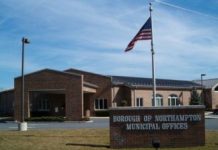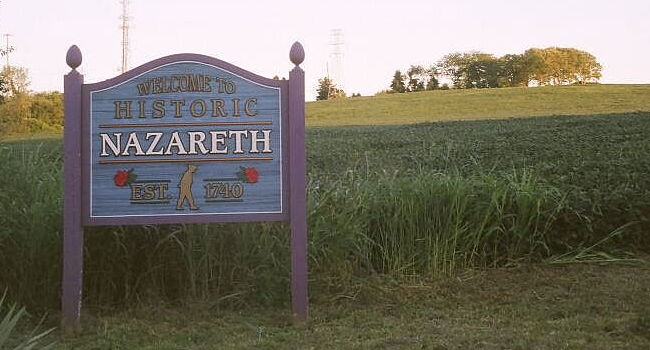The Moore Township Board of Supervisors met at 6 p.m. on April 6 via Zoom to discuss impact fees for development along Route 512, a livestock ordinance and opposition to Governor Wolf’s police proposal.
The Board of Supervisors discussed the process of assessing impact fees on development done along Route 512.
Township Solicitor David Backenstoe pondered the question of why the township cannot charge developers fees, whether they’re for commercial development or residential, since what follows is more police and fire protection.
“The answer is, your legislator won’t allow it,” said Backenstoe, “The municipality’s planning code only allows you to assess the fees that are authorized, so you have rec fees and things like that associated with developments, but those are the only fees you can charge.”
Backenstoe went on to explain that the only area where townships may collect fees for the impact the traffic will have on communities is offsite capital improvement impact fees.
Backenstoe explained, “Impact fees are an assessment to a developer to the traffic which they will create. The impact fee is supposed to be used by the township to offset that traffic by improving the road, improving infrastructure, or to use those fees to put up a traffic signal.”
Backenstoe said the problem, however, is it is a very involved process, “Before you can have an impact fee ordinance that allows you to assess fees on a developer, which is based on the traffic that is going to be generated by a particular development, you have to go through quite a process and create an impact fee ordinance.”
Township Engineer Kevin Horvath explained to the Board of Supervisors that the impact fee is not meant to pay for the increase in traffic generally.
“Traffic is going to increase all the time whether you have a development or not,” Horvath said. “The study is going to take into account how much this traffic is going to increase, whether there is a development or not.”
Horvath explained what will be determined is what the development’s impact of the township’s traffic area will have on the roadways.
“If you have very little development in these areas, then you are going to have fewer capital improvements that will be triggered by this,” said Horvath.
The supervisors’ biggest concern is the possible lack of revenue that the township would gain to offset the study. The Board of Supervisors decided to let Horvath and Backenstoe study the issue more and come back to them in May.
Also discussed during the meeting was a livestock ordinance.
Backenstoe explained that lately maintaining livestock in the township has become a problem, with goats not being penned up properly and accessing the road, “Which of course, could cause horrible automobile accidents and could hurt the goat or hurt someone driving.”
Backenstoe relayed that neighboring townships do not have any regulations in regards to this, being more rural, so he drafted a regulation for consideration.
The ordinance would require livestock to be fenced appropriately and housed. Matthew Flower of Scenic Drive voiced a concern that this would interfere with the Right to Farm Act, and police officers would issue citations to farmers due to an animal that would involuntarily escape.
“I don’t think the Right to Farm Act includes allowing your livestock to enter onto public roads or your neighbor’s property against their will,” Backenstoe said. “Unless that happens, the police are not going to do anything with someone’s livestock. It would only be on a highway, public highway, involved with an automobile accident, and I just don’t think those are normal farming operations.”
Flower expressed the concern for a man who has a 100-acre dairy farm, and if two cows got out, that they could be looking at a criminal fine.
Backenstoe agreed that was a “very legitimate concern.” Backenstoe reassured Flower that the police would not be going out and looking for livestock on public roads and citing people. Rather, they would assess the situation if livestock were in the road, and try to locate the owner and give a warning. However, if the police would have to keep returning, then “they might cite them,” said Backenstoe.
The board will vote on the livestock ordinance next month.
The American Rescue Plan Act distributed funds directly to municipalities; Moore Township’s first estimate is a little over $900,000, but it’s not a final estimate. Township Manager Nicholas Steiner went to different town hall meetings to understand what it can be used for. Some examples are assistance to households, small businesses, and non-profits and impacted industries from COVID. The funds can also be used for loss revenue replacement and infrastructure, specifically for water but not roads and bridges, and can also be used for sewers and expanding broadband.
The township also passed a resolution to signify the township’s opposition to Governor Wolf’s proposal for state police. The original proposal subjected municipalities without police departments or agreements with regional police departments that rely solely on state police to pay a fee. The most recent proposal charges those municipalities and municipalities with police departments, and those in agreements with regional police departments would also be subject to the fee.
“It would be an additional charge to us if this proposal went into effect,” Steiner said. “The additional charge would be an additional $40,000. So, we are asking our state reps and senators to oppose this.”
The Moore Township Board of Supervisors will meet again at 6 p.m. on May 4 at the Recreation Center Pavilion.









